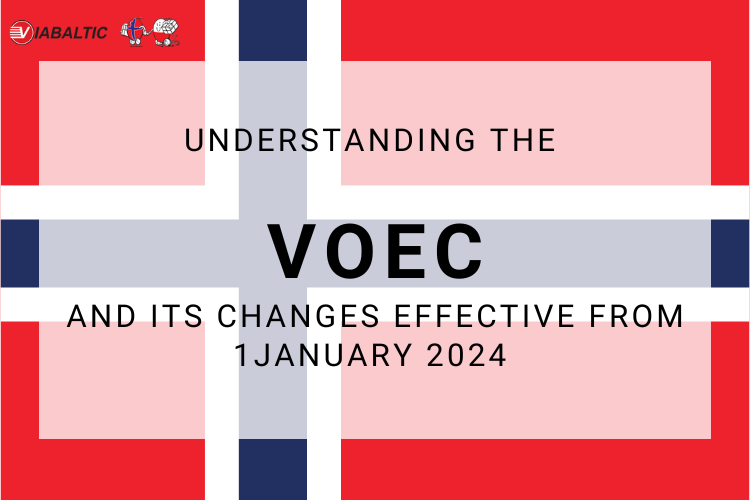Understanding the VOEC scheme and its changes effective from January 2024

Private individuals in Norway who purchase low value goods, or services provided remotely from abroad ( electronic services, but also all remotely provided services – for example, legal and consulting services) must pay VAT.
In such cases, the obligation to calculate and collect VAT falls on the foreign provider of remote services, or the provider of low-value goods.
The Norwegian tax authorities have established a simplified registration and reporting system. The rules and simplified registration system are very similar to those applicable in EU member states.
Companies selling remote services, as well as suppliers of goods up to a value of 3000 NOK to private individuals and non-business customers (B2C) in Norway and have no registered business address or residence in Norway, are obligated to register, collect, and pay VAT on their B2C sales to the Norwegian Tax Administration.
The NOK 3,000 threshold of the VOEC scheme applies per item – not per invoice or transaction. The value of the item at “point of sale” is decisive. Additional costs and fees – e.g. shipping and insurance costs – are excluded when determining if the sale is within the NOK 3,000 threshold (but to be included when calculating the VAT).
However, under the VOEC program, despite the low value of sales, the following types of goods cannot be imported:
– Food items
All kinds of food and drinks, including nutritional and dietary supplements that are not medicines. Special rules apply to the import of medicines.
– Excise duty goods
– Illegal goods and goods subject to restrictions under Norwegian law
In these cases, one must proceed through a customs agency.
Changes effective from January 1, 2024:
Until now, shipments valued below 350 NOK were exempt from customs declaration. From January 1, this exemption will be removed.
Another important change will be the requirement to provide a 7-digit VOEC number to the transport company responsible for transporting goods on behalf of the selling company.
The carrier is then obligated to provide the VOEC number to the Norwegian customs authority. Additionally, relevant information about the contents of the shipment must be provided, including its value, description, and quantity of goods.
It is important to provide the VOEC number digitally to avoid delays, fees from the transporter of the goods, and that the customer is charged with value added tax a second time when the goods cross the border.
For more information, visit:
https://www.skatteetaten.no/en/business-and-organisation/vat-and-duties/vat/foreign/e-commerce-voec/
https://www.skatteetaten.no/en/business-and-organisation/vat-and-duties/vat/foreign/e-commerce-voec/sending-goods-under-the-voec-scheme/
And for guidelines and registration in VOEC:
https://www.skatteetaten.no/en/business-and-organisation/vat-and-duties/vat/foreign/e-commerce-voec/new-user/
